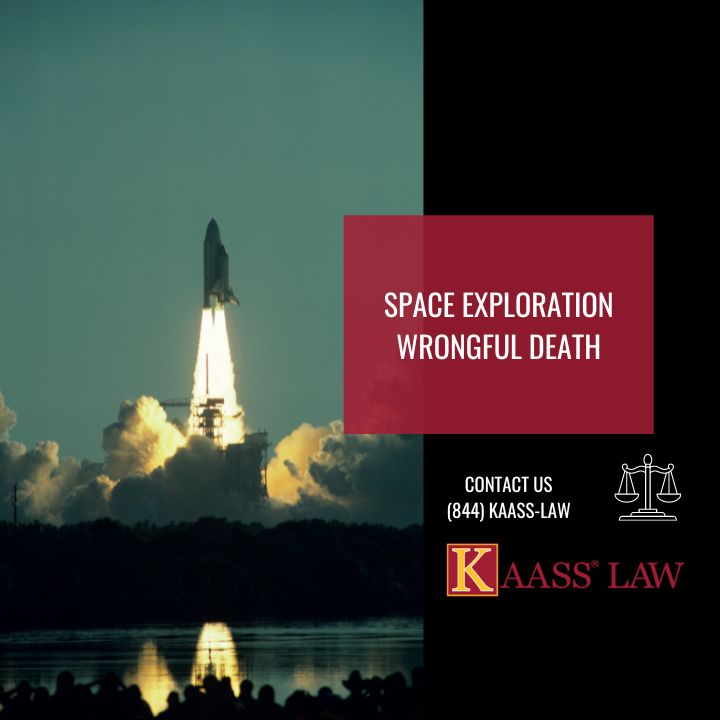Space exploration has captivated humanity’s imagination for decades, pushing the boundaries of human capability and technological innovation. However, as we venture further into the cosmos, new legal and ethical challenges arise. One such challenge is the concept of wrongful death in space exploration. This raises questions about jurisdiction, liability, compensation, and the very nature of accountability beyond our planet. This essay delves into the complexities surrounding wrongful death in the context of space exploration. To add, we will be examining both the legal framework and the ethical considerations that come into play.
Legal Complexities
First, let’s discuss jurisdictional ambiguity. Space exploration involves international collaboration, with multiple nations contributing to missions and sharing resources. Determining which jurisdiction is applicable in cases of wrongful death becomes intricate.
Second, we dive into liability and causation. Space missions involve complex systems and intricate technologies. Additionally, this makes it challenging to pinpoint the cause of a fatal incident. Deciphering whether a death was a result of technical failure, human error, or unforeseen circumstances becomes essential in determining liability. As the line between human and automated involvement blurs, attributing responsibility can be an intricate legal process.
Third, we have informed consent. Space tourists and private individuals may willingly participate in spaceflights, assuming certain risks. However, the issue of informed consent becomes delicate when considering the inherently hazardous nature of space travel. What level of risk should participants be made aware of, and how does this impact legal proceedings if a fatality occurs?
Ethical Considerations
What is the difference between exploration and preservation of life? Space exploration is driven by the desire to explore the unknown and expand our understanding of the cosmos. However, this ambition can be at odds with the imperative to ensure the safety and preservation of human life. Balancing these objectives requires careful ethical deliberation.
The pursuit of scientific knowledge and technological advancement should not overshadow the value of human life. The ethical responsibility to prioritize the safety of astronauts and space tourists must be upheld, even in the face of ambitious goals.
When a wrongful death occurs in space exploration, determining compensation for the bereaved families becomes a complex issue. Analogous to traditional concepts of compensation, this may not apply in space travel, given the unique circumstances. Fairly addressing the financial, emotional, and psychological impact on the families requires novel ethical approaches.
Additionally, as humanity contemplates the prospect of long-term space colonization, questions about governance, jurisdiction, and legal frameworks become paramount. Establishing a just system that ensures the safety and rights of future space colonists is an ethical obligation, as a matter of fact.
Future Considerations
Addressing wrongful death in space exploration necessitates global cooperation to establish clear legal guidelines. Collaborative efforts should result in an internationally accepted framework that outlines jurisdictional responsibilities and procedures for investigating and compensating for fatalities.
For space tourists and participants in experimental missions, robust informed consent protocols are essential. These protocols should transparently convey the potential risks, uncertainties, and implications of participating in space travel, enabling individuals to make informed decisions as a result.
Technological advancements should be directed toward enhancing the safety of space travel. Stricter safety protocols, rigorous testing, and redundancy mechanisms can mitigate the risks associated with space exploration.
Finally, the space industry, both governmental and private, must establish independent ethical oversight bodies. These bodies can ensure that ethical considerations remain central to decision-making processes. All things considered, this safeguards against the erosion of ethical principles in the pursuit of scientific progress.
Space Exploration Wrongful Death Attorney
Wrongful death in the context of space exploration represents an intricate blend of legal complexities and ethical dilemmas. As humanity pushes the boundaries of exploration, it is imperative that the legal framework surrounding space activities evolves to address the unique challenges of accountability beyond our planet. Ethical considerations must remain at the forefront. All in all, we ensure that the pursuit of knowledge and discovery does not come at the cost of human life. By fostering international collaboration, enhancing safety measures, and establishing robust ethical oversight, society can strive to strike a delicate balance between the advancement of space exploration and the preservation of human dignity.
Visit another one of our websites for more information on other legal matters we are able to assist you in!

